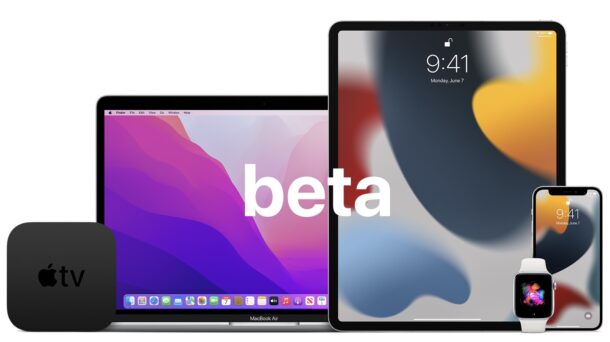Beta 2 of macOS 12.3, iOS 15.4, iPadOS 15.4 Released for Testing

Apple has released the second beta versions of macOS Monterey 12.3, iOS 15.4, and iPadOS 15.4 to users enrolled in the beta testing programs for Mac, iPhone, and iPad.
The latest iOS 15.4 beta includes support for Tap to Pay for accepting contactless payments, along with official support for using Face ID with a mask, iCloud Keychain notes, support for EU digital covid vaccine passes, an Apple Card widget, new emoji icons including a melting face, salute, pregnant man, low battery, bubbles, beans, troll, hands forming a heart, and more.
iPadOS 15.4 beta also includes support for Face ID with a mask when applicable, new emoji icons, and support for Universal Control.
iPhone and iPad users enrolled in the beta programs can find iOS 15.4 beta 2 and iPadOS 15.4 beta 2 as a download in Settings > General > Software Update.
macOS Monterey 12.3 beta includes support for Universal Control, which allows for using a single mouse and keyboard across multiple Macs and iPads, along with the new Emoji icons. MacOS Monterey 12.3 also presumably will resolve the bluetooth battery drain issue that is impacting some Mac laptop users overnight.
Mac users running beta versions of system software can download the latest macOS Monterey 12.3 beta 2 update from System Preferences > Software Update.
For those curious, Universal Control is enabled by default in macOS Monterey 12.3 and iPadOS 15.4 betas, though specific controls for this feature can be found on macOS in System Preferences > Displays > Advanced, and for iPad, in Settings > General > AirPlay & Handoff.
The latest versions of stable system software are currently macOS Monterey 12.2 for Mac, iOS 15.3 for iPhone, and iPadOS 15.3 for iPad.
Apple usually goes through several beta versions before issuing a final build to the general public, suggesting that the final versions of iOS 15.4, iPadOS 15.4, and macOS 12.3 are at least a month away. Apple has previously said that Universal Control will be released in Spring of 2022, which could also give an indicator of the timeline of the finalization of these operating system versions.

